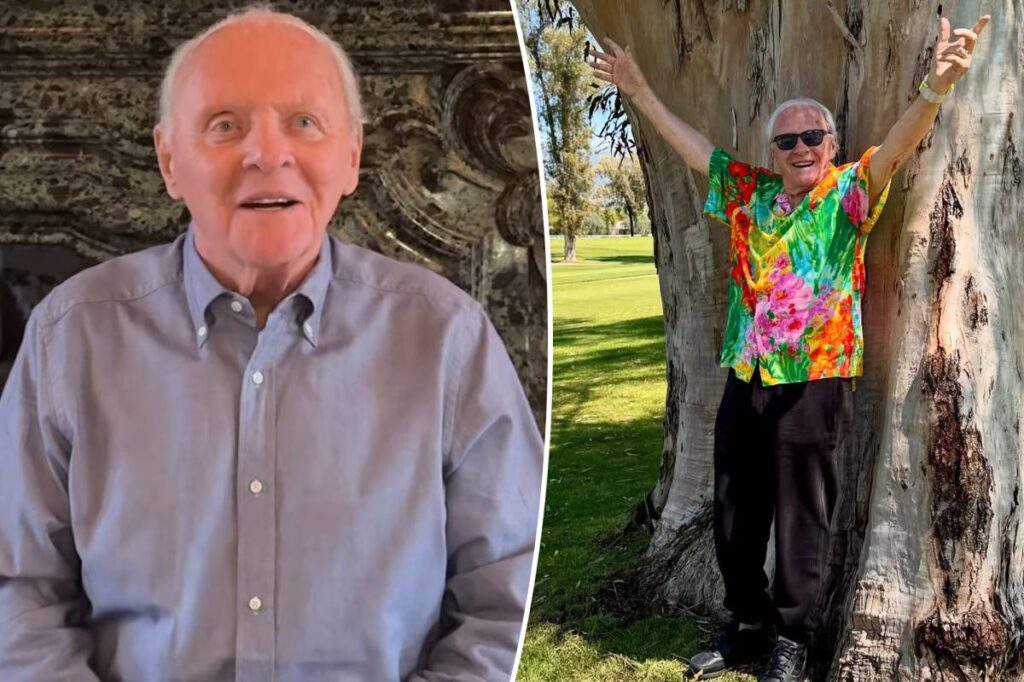Anthony Hopkins recalls how a frightening incident led him to realize he was battling alcoholism.
“When I was driving drunk here in California during a power outage and I had no idea where I was going, I realized I could have killed someone. Or myself,” he said during an appearance on The New York Times podcast “The Interview” on Saturday.
“I could have killed my family in the car.”
The Oscar winner added: “I realized I was an alcoholic and came to my senses.”
Mr. Hopkins, 87, recalled seeing his former agent at a party in Beverly Hills and admitting, “I need help.”
Page Six has reached out to the actor’s representative for further comment.
The iconic actor recalled other details after attending a 12-step program in Los Angeles, including the exact time he heard a voice that helped him forget his drinking problem.
“I looked at the clock and it was exactly 11 o’clock,” he revealed.
“And here’s the eerie part: Some deep, powerful thought or voice spoke to me from within and said, ‘It’s all over. Now you can start living. And don’t forget for a second, because everything was done for a purpose.'”
Mr. Hopkins said the voice — which he described as “masculine” and “like a radio voice” — eliminated his desire to drink.
“My desire to drink was taken away from me or left me,” he said. Since then, Hopkins has remained sober for decades.
“Right now, I have no other theory of divinity, or the force, life force, or whatever that is inside all of us that creates us from birth. I believe it is consciousness. That’s all I know.”
The legendary Silence of the Lambs star, who celebrated 49 years of sobriety in December, also explained why drinking was appealing to him as a young actor.
“Booze is great because it instantly makes you feel like you’re in another space,” he said, adding that booze “made[him]feel bigger” and helped him “neutralize” his “discomfort.”
He also reflected on overcoming challenges.
“There are tremendous challenges in life, and people realize that,” he said. “But finally, as I approach 88, I wake up in the morning and say, ‘I’m still here. How?'”
If you or a loved one is affected by any of the issues raised in this article, please call SAMHSA’s national helpline at 1-800-662-HELP (4357).

